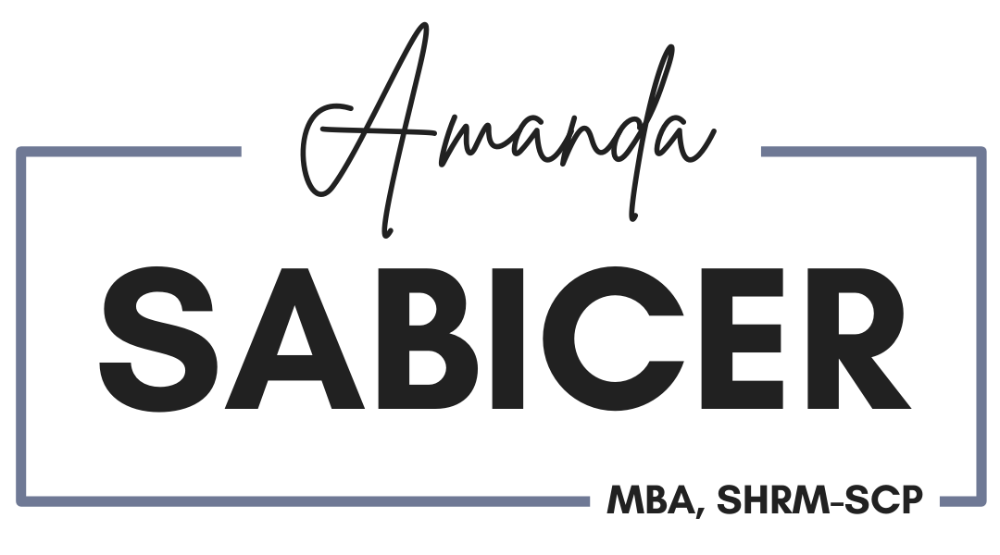19. Hire for Potential, Promote for Performance: Building a Strong Clinic Team
Nov 19, 2025If you're a clinic owner, few decisions feel as high-stakes as hiring your first team member or deciding who's ready for more responsibility. Even if you haven't made those moves yet, the worries are building: What if I pick the wrong person? What if they can't actually do the job? What if a promotion backfires?
These concerns are common, and they usually stem from one core mistake: confusing potential with performance.
It's easy to be swayed by enthusiasm, "good vibes", or loyalty. It's just as easy to feel pressured into giving someone a promotion they're not ready for. But those choices can create more problems than they solve.
In this post, I'm breaking down a simple, reliable framework: Hire for potential, promote for performance. You'll learn the three qualities that truly predict success, the interview questions that flag issues early, and how to make strategic staffing decisions that strengthen your clinic instead of destabilizing it.
Why “Potential” Matters at the Hiring Stage
When you’re hiring, you’re essentially making a bet. You’re betting that someone can grow into the role, handle the complexity, and adapt as your clinic evolves. That’s why potential (not past titles or polished résumés) is the strongest predictor of long-term fit.
But potential doesn’t mean vague “promise.” It’s not, “I think they seem nice, and they said they’re a fast learner.” Real potential comes down to three key qualities:
1. Character
This is about attitude, behavior, and alignment with your clinic’s values. Does the person have the integrity, attitude, and work ethic you need in your clinic?
For example, in a medical setting, it’s essential that staff are honest and transparent. Mistakes happen, and you need people who can own them rather than hide them. Other qualities to look for might include emotional intelligence, adaptability, or the ability to take feedback.
2. Core Competencies
These are the technical skills required for the role. A front desk hire must be comfortable multitasking, navigating multiple systems, and staying calm with patients. A medical assistant needs patient-handling skills, efficiency, and solid charting practices.
3. Transferable Skills
This is where real potential hides. Transferable skills like communication, initiative, problem-solving, customer service, are what allow someone to flex beyond their job description and support your clinic as it grows. These are your “Swiss Army knife” capabilities.
When you evaluate candidates through these three lenses, you remove guesswork and dramatically increase your chances of choosing the right person.
The Interview Questions That Reveal Red Flags Early
To understand someone’s potential, you need to understand how they think, how they handle challenges, and what motivates them. Here are a few powerful questions:
Tell me about a time you had to learn something new without someone teaching you."
This shows initiative and resourcefulness.
"Tell me about a difficult patient or customer situation. How did you handle it?"
This reveals emotional intelligence and real-world problem-solving. Pay attention to why they considered it difficult and what they saw as an appropriate response.
"If I spoke to your previous supervisor, what would they say you most need to work on?"
This exposes self-awareness and honesty. I've had people refuse to give me any areas where they think they need to grow, claiming their past supervisor wouldn't have suggestions. That's a red flag. Either they didn't have a close enough relationship with their supervisor to get real feedback, or they lack self-awareness about what they actually want in their career. I don't want either issue in my workplace.
"Give me an example of an idea you were excited about that didn't work out. What happened next?"
This reveals how they respond to failure and whether they stay solution-focused. The gem is in how they responded when it failed. You can also see what they're passionate about and imagine them bringing that energy into your organization.
Red flags show up quickly when someone refuses to share weaknesses, can't name a failure, or seems to lack curiosity. These patterns matter more than a perfect résumé.
Promoting for Performance
Once someone is part of your team, the next big question is when—and if—they’re ready for more responsibility. This is where many clinic owners stumble, confusing enthusiasm or loyalty with readiness. The rule of thumb? Promote based on performance, not potential.
Performance means proven ability to deliver results in the role they currently hold. Before offering a promotion, ask yourself:
- Is there a real business need?
A promotion should address an organizational gap. Giving someone a new title and salary without new responsibilities leads to misaligned expectations and frustration (for both you and the employee). - Have they consistently excelled in their current role?
Good performance in some areas but not others isn’t enough. They need to demonstrate reliability, competence, and initiative across their current responsibilities. - Do they have the capacity for new responsibilities?
Use development plans and “stretch assignments” to prepare them. For example, if a medical assistant might become a supervisor, gradually expose them to teaching other staff, managing schedules, or handling small administrative projects. If an admin staff member is moving up, give them budget or project management tasks to test their readiness.
By layering responsibilities, you pressure-test their skills and build confidence before they officially step into the new role. This reduces the risk of underperformance and frustration after promotion.
Avoid Common Promotion Pitfalls
Promotions are powerful motivators, but when misused, they can backfire. Here’s what to watch out for:
- Using promotions purely as a reward.
Performance bonuses, recognition, or increased autonomy can motivate without creating role confusion. - Assuming everyone wants a promotion.
Some employees are happiest excelling in their current role, without taking on extra responsibilities. - Promoting too early.
An employee who isn’t ready may struggle, lose confidence, or even leave, creating disruption for your clinic and other staff. - Planning for the transition.
Make sure someone is ready to cover their previous duties. Ideally, develop their replacement at the same time to ensure continuity.
How to Make Strong, Stable Staffing Decisions
Here’s the simplest way to apply this framework:
- When hiring, look for potential: character, core competencies, transferable skills.
- When promoting, look for performance: consistent results, demonstrated readiness, and a real business need.
This clarity protects your clinic, reduces turnover, and builds a team that grows with you rather than away from you.
Hiring and promotions don’t have to feel like risky guesses. When you separate potential from performance and evaluate each at the right time, you make smarter, steadier decisions that support both your clinic and your patients.
Listen to the full podcast episode, where I share lessons from hiring dozens of team members and handling the promotion conversations that follow.
And if you're finding yourself stuck on hiring decisions or unsure how to handle promotions, book a complimentary discovery call so we can clarify what's holding you back and build a staffing strategy that actually works for your clinic


